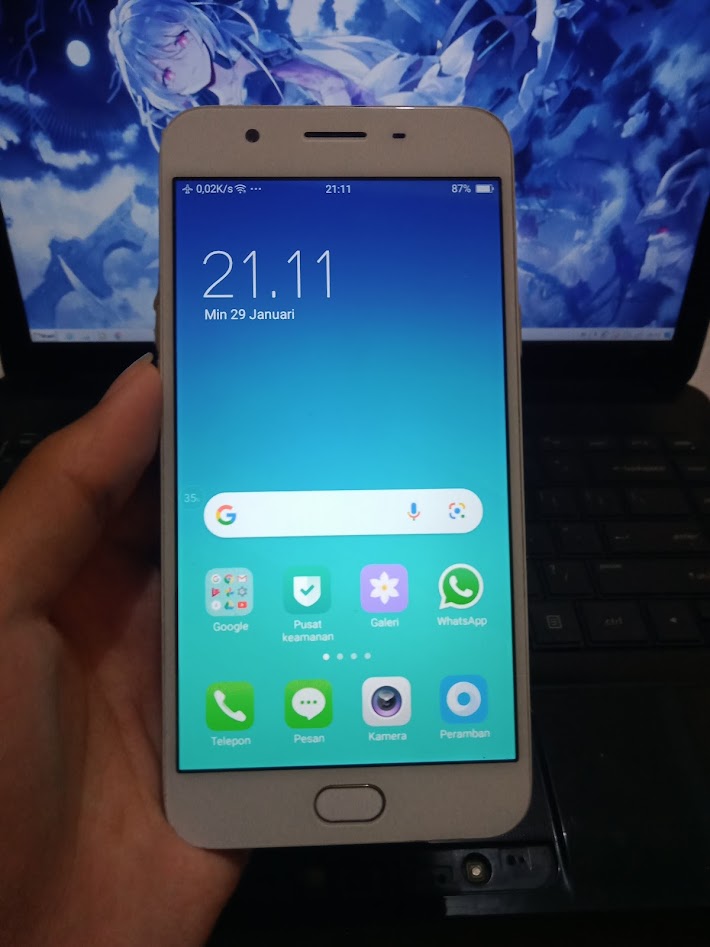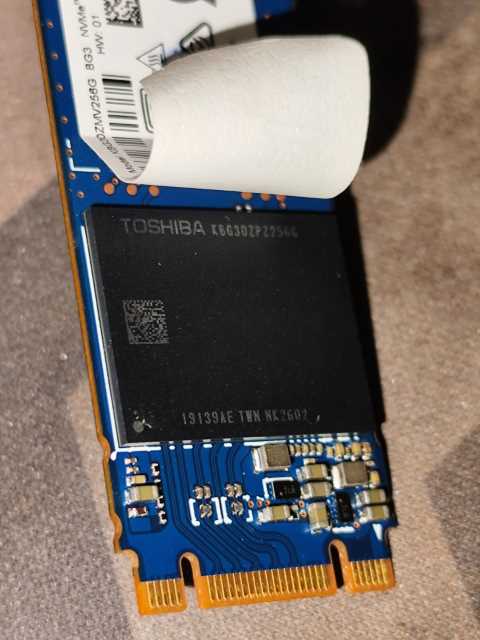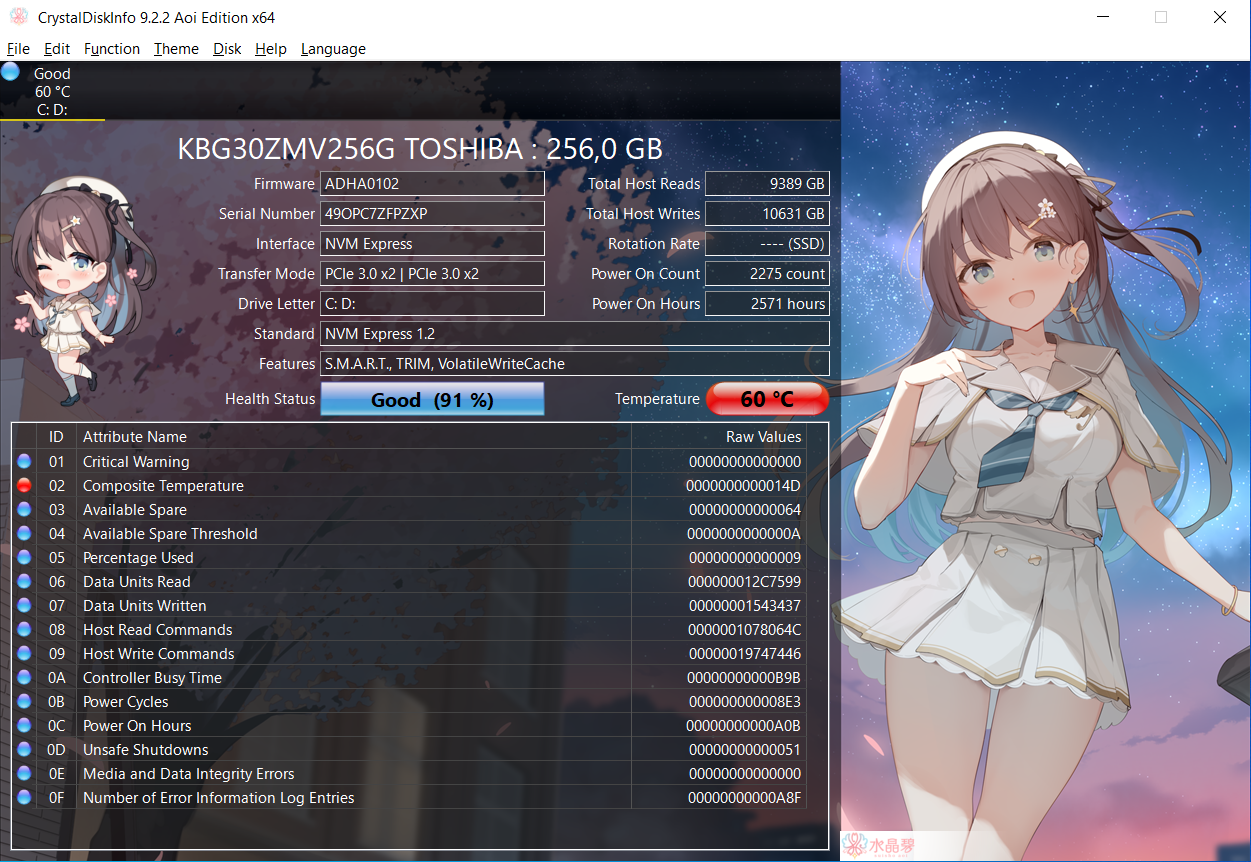Comparing: Samsung KMRX10014M vs TOSHIBA KBG30ZMV256G
In this comparison, we analyze two Disks: Samsung KMRX10014M and TOSHIBA KBG30ZMV256G, using synthetic benchmark tests to evaluate their overall performance. This side-by-side comparison helps users understand which hardware delivers better value, speed, and efficiency based on standardized testing. Whether you're building a new system or upgrading an existing one, this benchmark-driven evaluation offers valuable insights to guide your decision.
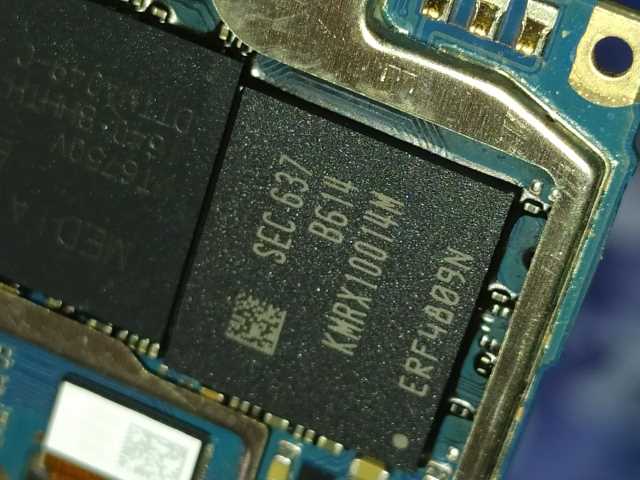
Samsung KMRX10014M
| Type: | Disks |
|---|---|
| Model: | Samsung KMRX10014M |
| Capacity: | 32GB |
| Interface: | eMMC |
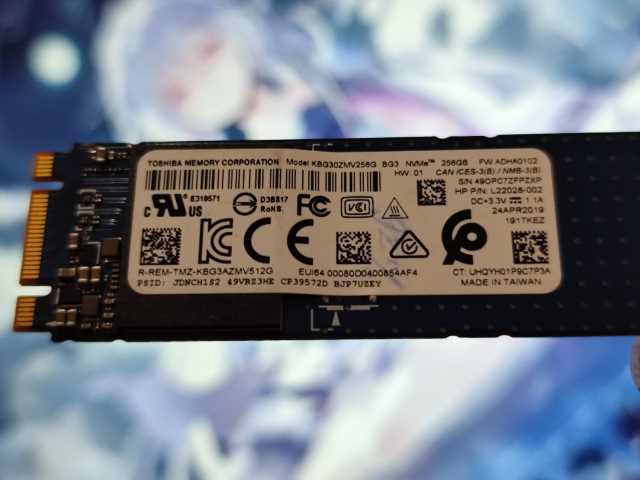
TOSHIBA KBG30ZMV256G
| Type: | Disks |
|---|---|
| Model: | KBG30ZMV256G |
| Capacity: | 256GB |
| Interface: | PCIe 3.0 x2 |
Specification Comparison Table
This specification comparison presents technical details of several devices or components to help you understand the key differences between each option. Use this table as a reference to determine which device best suits your needs.
| Specification | Samsung KMRX10014M | TOSHIBA KBG30ZMV256G |
|---|---|---|
| Brand | Samsung | TOSHIBA |
| Format | eMMC 5.1 | SSD M.2 NVMe 2280 |
| Capacity | 32GB | 256GB |
| Interface | eMMC | PCIe 3.0 x2 |
Submission Comparison Table
This submission comparison table displays the number and details of benchmark data submissions from various devices or components. This information helps you understand the performance based on the benchmarks that have been tested, as well as providing an overview of the consistency and popularity of the available benchmark results.
Submission Comparison Chart
This chart visualizes the benchmark scores comparison between two hardware devices based on submitted data.
Media Gallery
A collection of photos of tested hardware. These images can help you identify the physical form, model, and variant of the hardware in question. These photos are from our own documentation, and if they are not available we may not be able to document them.
About Hardware Samsung KMRX10014M
OPPO F1s eMMC 5.1 (Samsung KMRX10014M) is an internal storage chip made by Samsung that is used in the OPPO F1s smartphone. Relying on eMMC 5.1 technology, this chip offers increased data transfer speeds compared to the previous generation (eMMC 5.0), providing a smoother user experience, especially when it comes to opening apps, saving files, and running the Android operating system responsively.
Although not comparable to UFS (Universal Flash Storage) in terms of performance, eMMC 5.1 remains an economical storage solution for mid-range devices like the OPPO F1s. The technology is reliable enough to handle everyday activities such as opening social media, recording videos, taking photos, and storing documents and apps.
The test was conducted on an OPPO F1s device with MediaTek MT6750 specifications, 4GB of RAM, and 32GB of internal storage, running on the Android 6 operating system. The internal storage on the OPPO F1s uses the Samsung KMRX10014M chip, which is an early generation eMMC 5.1 with relatively high performance for the standards of its release time.
Interestingly, despite the device being over 7 years old, testing using the Cross Platform Disk Test (Mobile) showed read speeds of 286.5 MB/s and write speeds of 78.7 MB/s. These figures are impressive for an eMMC chip that has gone through a long usage cycle, and indicate that the Samsung KMRX10014M has good NAND Flash endurance.
Overall, the eMMC 5.1 on the OPPO F1s offers an ideal combination of power efficiency, moderately high performance, and low manufacturing costs. This makes it a very suitable solution for devices with standard to mid-range requirements, especially when first released. While eMMC performance may degrade with age, these benchmark results show that the chip is still capable of performing quite well even after many years.
Device test (testbed):
Device: OPPO F1s
CPU: MediaTek MT6750
RAM: 4GB
Storage: 32GB
OS: Android 6
* This test was conducted after the device was approximately 7 years old, which is likely to have degraded the performance of eMMC.
Friday, 19 November 2021 16:41:45 | Update: 1 month ago
About Hardware TOSHIBA KBG30ZMV256G
The TOSHIBA KBG30ZMV256G is a 256GB NVMe solid-state drive (SSD) specifically designed to deliver high performance in modern computing devices such as ultrabooks, thin laptops and space-constrained systems. Sporting an M.2 2280 form factor, this SSD offers an ideal combination of high speed and compact design, making it an excellent choice for users who require fast storage without sacrificing physical space within the device.
It is built with a PCIe Gen3 x2 interface and supports the NVMe 1.3 protocol, which is significantly faster than traditional SATA-based SSDs. Thanks to 3D NAND flash technology, the TOSHIBA KBG30ZMV256G is able to deliver consistent performance and better power efficiency, while extending the lifetime and reliability of the device. This technology also contributes to low power consumption, which is especially important for laptops and mobile devices that rely on battery efficiency.
In tests conducted using a ThinkPad T470 with an Intel Core i5-6300U processor, 8GB of RAM, and Windows 10 22H2 operating system, this SSD performed very well for a variety of daily computing needs. Based on the CrystalDiskMark benchmark, read speeds reached 774.69 MB/s and write speeds of 401.20 MB/s. Tests with the ATTO Disk Benchmark showed read speeds of up to 1000 MB/s and 589.86 MB/s write, while in the AS-SSD Benchmark, read speeds jumped to 1363.84 MB/s and 786.62 MB/s write. These results show that the SSD is capable of handling demanding tasks such as fast booting, large application loads and large file transfers very efficiently.
Overall, the TOSHIBA KBG30ZMV256G is an ideal choice for users who want an NVMe storage upgrade with high speed, low power consumption and a compact design. Suitable for professionals who require consistent performance under high mobility, this SSD also offers added value in terms of energy efficiency and long-term durability. As a product from a reputable brand like Toshiba (now Kioxia), its reliability and quality have been proven in the global market.
Device test (testbed):
Device: ThinkPad T470
CPU: i5-6300U
RAM: 8GB RAM
OS: Windows 10 22H2
Thursday, 10 August 2023 10:15:02 | Update: 1 month ago

